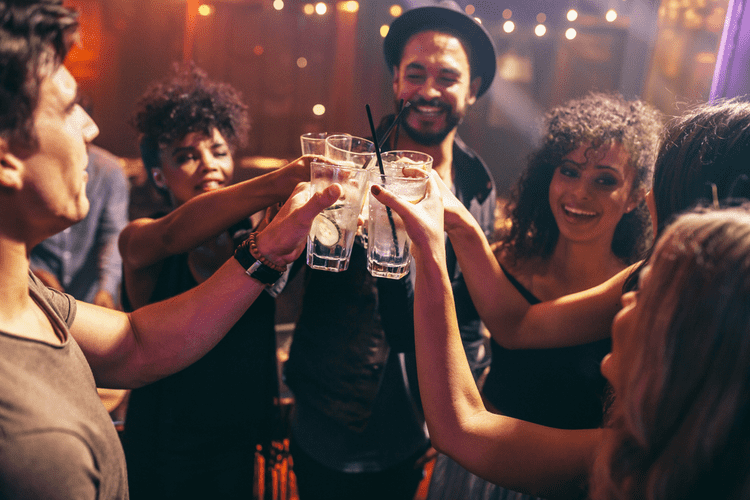When you’re allergic to something — such as pollen — your immune system creates a protective response. Keep reading to learn more about why you sneeze after https://accountingcoaching.online/12-group-activities-for-addiction-recovery/ eating and how you can prevent sneezing fits after eating in the future. Nonallergic rhinitis most often doesn’t cause an itchy nose, eyes or throat.
When the pleasure of a pint is marred by unexpected sneezing or discomfort, it may be time to delve into the realm of alcohol-related allergies. The journey towards this understanding begins with the first port of call – consulting with healthcare professionals. This genetic condition means that you experience negative symptoms Why Do I Sneeze When I Drink Alcohol? when drinking alcohol because your body is unable to process it properly. Because the body can’t break down alcohol, it’s toxic byproducts flood the system and accumulate with each drink you have. Beer also contains histamines which could cause a reaction in some people, including sneezing and stuffy nose after drinking.
As Biden vows retaliation after US troop deaths, Republicans push for bigger response
These OTC solutions can alleviate symptoms such as sneezing, itching and hives, and are widely accessible for those dealing with less severe responses. Encountering a beer with a hearty dose of hops is often a delight for aficionados of the beverage; yet, for some, this experience comes with a less anticipated reaction – sneezing. ” surfaces amongst a minority who notice a peculiar correlation between their sip of ale and the onset of a sneeze. Delving into the inner workings of this phenomenon, we discover that hops and sneezing may indeed be linked by the thread of allergic sensitivities.
You might also react to certain alcoholic beverages if you have a histamine or sulfites intolerance. In very rare cases, reactions to alcohol may be a sign of Hodgkin’s lymphoma. You can see a few of these symptoms can be more in line with allergic reactions like hives, sneezing and wheezing (if you experience these, you should avoid that beer and talk with your doctor). The good news is that beer-related allergies are not typically life threatening.
Ibuprofen and Alcohol
If sneezing impacts your quality of life, talk to your doctor about ways to reduce or eliminate the problem. Your symptoms can also be due to an interaction between beer or alcohol and any medication you’re taking. Be sure to tell your doctor if you’re taking any medications or supplements. The researchers squirted PLpro into the noses of mice and found it stimulated a subgroup of sensory neurons called nociceptors that produce pain and itch sensations.

Although anyone who drinks excessively may experience negative reactions that likely are not an allergy, people with a true alcohol allergy can develop symptoms after drinking extremely small amounts. An allergic reaction to food usually happens within a couple of hours. A food allergy is your immune system’s response to a food protein that the body sees as harmful. Allergic reactions that involve hives, wheezing, and chest pain can occur almost immediately.
Alcohol intolerance
The rodents started sneezing about 14 seconds after PLpro exposure, versus 30 seconds after getting a control mixture. Mice dosed with PLpro sneezed almost four times more than controls in the first 2 minutes, the team reported in an 11 January preprint on bioRxiv. Among the domestic products, Porter contained the highest amount of histamine, followed, in order, by malt liquor, ale, lager, and light beer (containing less than 4% alcohol by volume). American lager contained less histamine than Canadian lager. La Rosa Tequileria & Grille in Santa Rosa serves up 160 different types of tequila. (Photo by Conner Jay) Slide 4 of 5 For vodka, stick to the plain types, as flavored vodkas can have higher histamine levels.

However, if symptoms escalate or include difficulty breathing, lightheadedness, or swelling, seek emergency medical attention without delay. Foremost among these strategies is the practice of avoidance. For individuals who have pinpointed hops as a trigger, steering clear of particularly hop-intense brews can be an effective way to prevent symptoms. However, avoidance is not always practical or desirable, especially for those who appreciate the unique flavours that hops impart. In these instances, seeking out beers with a lower hop content or switching to drinks bereft of this allergenic element altogether can help reduce the likelihood of an allergic reaction to hops.
How do you know if you’re allergic to beer?
If you develop any signs of a severe reaction, you should receive one or more doses of epinephrine. It’s available in preloaded syringes, known as epinephrine auto-injectors (e.g., EpiPen). If your doctor prescribes an epinephrine auto-injector, you should carry it with you at all times. Then go to your nearest emergency department for follow-up care. For many people, wine is the drink that causes them to sneeze. This is likely because wine contains histamines, which trigger allergies.
- An allergic reaction to food usually happens within a couple of hours.
- In some people, drinking alcohol may also trigger an allergic reaction, which can cause sneezing and other symptoms.
- This will help to reduce the number of histamines in your system and make it less likely that they’ll trigger a sneeze.
- The blood vessels around your nasal cavity can expand, making it a bit more difficult to breathe normally.
This dilation occurs first in the brain, so you may feel flushed or warm after only a few sips of alcohol. The dilation then extends to blood vessels throughout your body, including those in your nose. If you find out that you’re allergic to one ingredient, you might still be able to enjoy beer. With a little research and careful label reading, you may be able to find beer that doesn’t contain that particular allergen.
